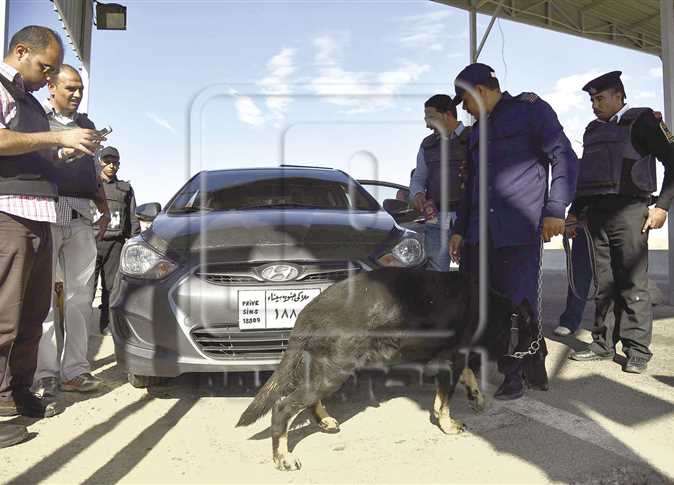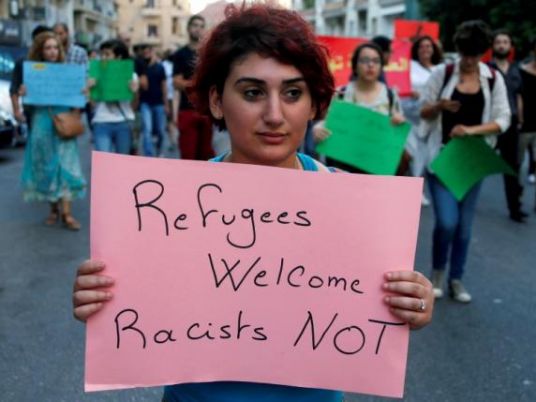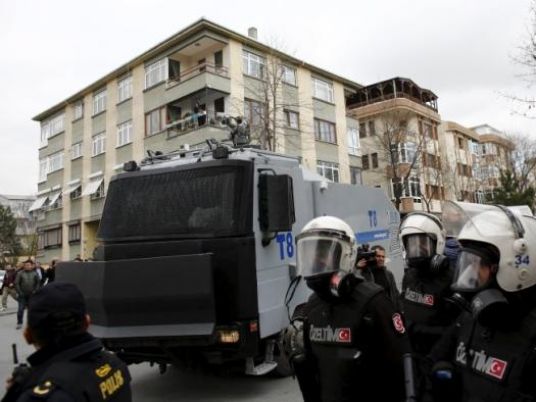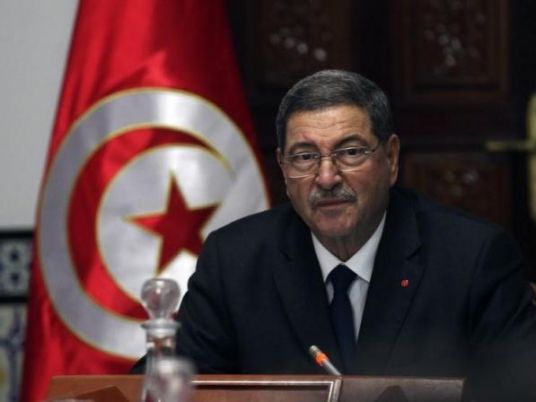Entering the third week of anti-regime protests, both state-owned and independent newspapers continue to dedicate their front-pages to extensive coverage of Egypt's most unprecedented uprising since 1977.
For its lead story, Al-Shorouk reports on the symbolic funeral held yesterday for the first martyr journalist Ahmed Mohamed Mahmoud, who was killed by a police officer last Friday. Mahmoud, a journalist at Al-Taawon, a publication issued by Al-Ahram and an independent distributor, was shot dead on the balcony of his office while capturing pictures of police apparatus attacking protestors in Qasr al-Aini Street.
According to the independent paper, the symbolic funeral was launched from Journalists Syndicate to Tahrir Square and hundreds of protesters carried an empty coffin covered with Egyptian flag. Demonstrators carried banners bearing anti-government slogans such as “Egyptian journalists support the people’s demands and call for the departure of the regime.”
The report adds that protesters heavily criticized the government’s visual media and called for conveying the real magnitude of the current crisis.
During the last 14-day mass demonstrations, the regime has tightened the noose on independent media, which suffered from violent crackdowns by Egyptian security forces.
On a different front, the liberal opposition party paper Al-Wafd publishes a small piece on a police barracks which was attacked yesterday by unknown assailants in Rafah in the Sinai Peninsula. The building was destroyed after being targeted by four rocket-propelled grenades, injuring a police officer and a citizen, says the report.
The independent Al-Shorouk’s top headline reads, “The prosecution accuses Habib al-Adli of shooting protesters.” Former Egyptian Interior Minister Habib al-Adli is now under investigation as responsible for opening fire on protesters and wasting public money. The complaints also accuse him of destabilizing the state’s security as a result of withdrawing security forces from the streets on Friday 28 January with tragic circumstances, which provoked violent riots and led to absolute chaos nationwide.
Reporting on the same issue, Al-Dostour, another independent paper, writes that a complaint was filed against al-Adli last Monday by the lawyer Mamdouh Mahmoud, accusing al-Adli of being in charge of the mass car bomb attack on an Alexandria church on New Year’s Eve.
It is also reported that the former Interior Minister has been banned from traveling abroad and his bank accounts have been frozen.
Al-Akhbar features a report on the release of Wael Ghoneim, Middle East marketing manager for Google and activist, after a 12-day detention since 28 January.
Ghoneim was arrested while participating in the anti-regime demonstration in Tahrir Square. During his long disappearance, some sources claimed that he is a member of Mohamed ElBaradei’s reform campaign as well as the anonymous motivator behind the “We are all Khaled Saeed” initiative. However, Amr Salama, Ghoneim’s close friend, categorically denied these allegations on Al-Arabiya channel last Monday.
The state-owned paper also displays a small picture of the newly appointed secretary-general of the ruling National Democratic Party Hossam Badrawi, accompanying Ghoneim on his way yesterday to Tahrir Square where the 25 January youth was celebrating his release.
The report quotes Ghoneim as saying, “I am not a hero but the demonstrators who have been protesting in the square till their freedom and dreams are fulfilled deserve to be called so.”
Finally, Al-Ahram announces that President Hosni Mubarak has shortened the curfew by an hour. The decision was put into action yesterday starting from 8 PM to 6 AM, says the report. Greater Cairo, Alexandria and Suez have been placed under curfew since 28 January after anti-Mubarak protests broke out. The government said the curfew was imposed in an effort to contain the escalation of violence that swept the whole nation. Thousands of Egyptians, nevertheless, defied the government’s restriction by insisting on protesting under any circumstances.
Egypt's papers:
Al-Ahram: Daily, state-run, largest distribution in Egypt
Al-Akhbar: Daily, state-run, second to Al-Ahram in institutional size
Al-Gomhorriya: Daily, state-run
Rose al-Youssef: Daily, state-run, close to the National Democratic Party's Policies Secretariat
Al-Dostour: Daily, privately owned
Al-Shorouk: Daily, privately owned
Al-Wafd: Daily, published by the liberal Wafd Party
Al-Arabi: Weekly, published by the Arab Nasserist party
Youm7: Weekly, privately owned
Sawt al-Umma: Weekly, privately owned




